
From 2012 to 2024, the provincial budget spent more than VND 2,500 billion on science and technology, accounting for an average of 2.73% of total regular expenditure, a relatively high figure compared to many other localities. Along with that, a series of resolutions and plans were issued, notably Resolution No. 13-NQ/TU (dated April 28, 2023) of the Provincial Party Committee on science , technology and innovation development to 2030; Resolution No. 57/2025/NQ-HDND (dated July 17, 2025) on attracting high-quality human resources, supporting up to VND 1 billion for experts and scientists. The province also issued many mechanisms to promote technology transfer, regularly removing difficulties for businesses, demonstrating a spirit of companionship in the development process. Thanks to those efforts, by September 2025, the whole province will have 33 science and technology enterprises, among the localities with the largest number in the country.
Some typical models have affirmed the "resilience" of high technology, such as: In Hoang Que commune, VinEco's 106-hectare high-tech agricultural zone with more than 63 hectares of greenhouses and membrane houses supplies 250 tons of clean vegetables per month; in Dam Ha commune, the super-intensive shrimp farming area in greenhouses of Viet Uc Quang Ninh Company Limited has created a source of high-quality shrimp seeds, opening up the prospect of forming a high-tech seafood production center in the North.

In industry, the province has gradually formed a chain of high-tech textile, mechanical engineering, electronics, and equipment assembly industries. The processing and manufacturing industry currently accounts for 12.43% of GRDP, maintaining a growth rate of 22%/year. At the same time, the province is researching the construction of a high-tech zone in Van Don special economic zone.
In the health sector, up to now, 100% of public health facilities in Quang Ninh have implemented electronic medical records, 1 year ahead of the local plan and 3 years ahead of the Ministry of Health. The health sector has also pioneered the application of artificial intelligence in diagnosis, typically Rapid technology at the Provincial General Hospital, helping to extend the "intervention window" for stroke patients from 6 hours to 24 hours.
Despite many positive results, high technology in Quang Ninh has not developed commensurate with its potential. Some mechanisms and policies are not really effective. After 5 years of implementing Resolution 313/2020/NQ-HDND on supporting technology transfer, the whole province has only supported 1 enterprise with an amount of 150 million VND. Many small and medium enterprises reflect that it is difficult to access policies due to high criteria and complicated procedures.
Land and tax issues related to high-tech enterprises are still entangled, affecting the progress of project implementation. In particular, high-quality human resources are still seriously lacking. Despite policies to attract talent, the number of experts and scientists working here is still small. Most enterprises still choose to import technology instead of investing in research and development (R&D), limiting their autonomy. In addition, the system of vocational schools, colleges and universities only provides basic training, without specialized programs on artificial intelligence, biotechnology, new materials, automation, etc.
At the working session with the Provincial People's Committee on September 4, Comrade Nguyen Phuong Tuan, Vice Chairman of the National Assembly's Committee on Science, Technology and Environment, emphasized that Quang Ninh needs to take stronger steps. Specifically, it is necessary to add the planning of Quang Ninh High-Tech Park to the provincial planning; accelerate the completion of two high-tech agricultural zones, Hong Thai Tay and Dam Ha, turning them into research and transfer centers; and at the same time, have clear incentive mechanisms on land, taxes, and loans for high-tech enterprises. It is very necessary to boldly apply the testing mechanism and accept controlled risks. Quang Ninh also needs to strengthen cooperation, learn from successful domestic models, and expand international cooperation to attract large technology corporations, thereby creating a stronger spillover effect.
At the same time, the province must focus on investing in human resource training. State-school-enterprise linkage programs need to be implemented substantially, training linked to market needs. Policies to encourage businesses to invest in R&D must be specified through tax incentives and financial support, to change the mindset of "importing technology" to "self-research and innovation".
Source: https://baoquangninh.vn/can-giai-phap-manh-phat-trien-cong-nghe-cao-3375812.html


![[Photo] Panorama of the cable-stayed bridge, the final bottleneck of the Ben Luc-Long Thanh expressway](https://vphoto.vietnam.vn/thumb/1200x675/vietnam/resource/IMAGE/2025/9/30/391fdf21025541d6b2f092e49a17243f)
![[Photo] Solemn opening of the 12th Military Party Congress for the 2025-2030 term](https://vphoto.vietnam.vn/thumb/1200x675/vietnam/resource/IMAGE/2025/9/30/2cd383b3130d41a1a4b5ace0d5eb989d)
![[Photo] The 1st Congress of Phu Tho Provincial Party Committee, term 2025-2030](https://vphoto.vietnam.vn/thumb/1200x675/vietnam/resource/IMAGE/2025/9/30/1507da06216649bba8a1ce6251816820)

![[Photo] General Secretary To Lam, Secretary of the Central Military Commission attends the 12th Party Congress of the Army](https://vphoto.vietnam.vn/thumb/1200x675/vietnam/resource/IMAGE/2025/9/30/9b63aaa37ddb472ead84e3870a8ae825)
![[Photo] President Luong Cuong receives President of the Cuban National Assembly Esteban Lazo Hernandez](https://vphoto.vietnam.vn/thumb/1200x675/vietnam/resource/IMAGE/2025/9/30/4d38932911c24f6ea1936252bd5427fa)
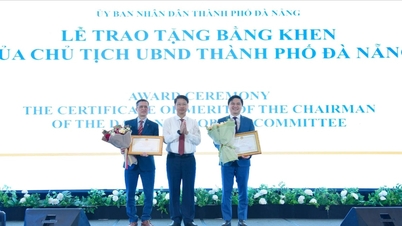

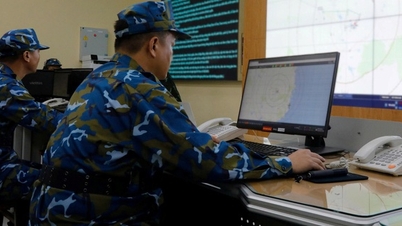

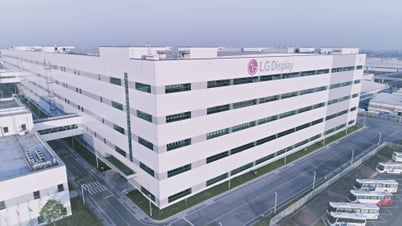

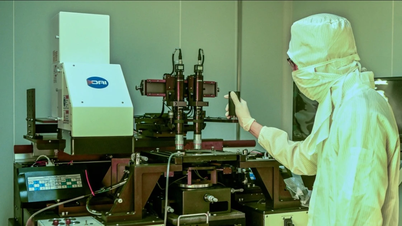











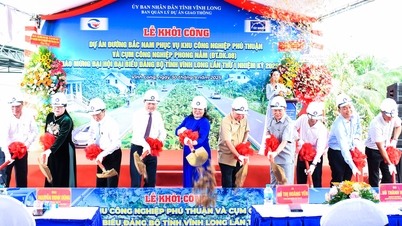








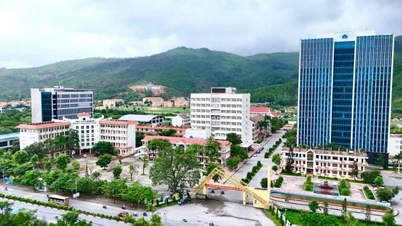
















































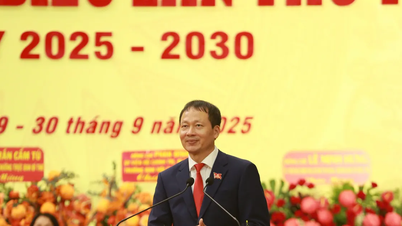






















Comment (0)